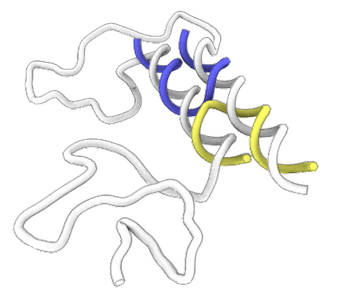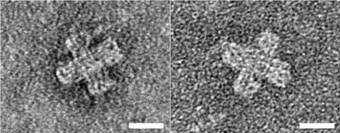Funding
Björn Högberg’s lab is funded by The Göran Gustafsson foundation, H2020, the ERC, The Knut and Alice Wallenberg foundation, the Swedish Research Council and the Karolinska Institutet
New ERC grant!
Björn Högberg was recently awarded a prestigious ERC Advance grant by the European Comission.
Publication in Nat. Comp. Sci.
How to make antibodies walk on antigen patterns read here
Students wanted
We are looking to recruit master’s thesis students and interns that might be interested in doing a PhD in disciplines from biology to physics and computer science. Please contact Björn.
Contact
For any requests about the lab or this site, send your e-mail to Björn Högberg or call Björn on: +46 8 524 870 36. Our webpage on The Karolinska Institutets web can be found here. Follow on Twitter: @bjorn_hogberg

Research Focus
The overarching effort in our lab is to develop new DNA-based methods and molecular tools for cell biology research.
Molecular tools for cell biology
By using DNA-origami, we are able to construct precise patterns of different molecules on a nanometer scale. Using these we can probe the effect the distance has on a number of cellular mechanisms. In this effort we use cell culture, superresolution microscopy, electron microscopy and next generation sequencing. We are also developing new (non-origami) DNA probes to detect splicing events and protein clustering in-situ.
Development of DNA self-assembly technology
A second part of the lab is focused on research on the basics of DNA self-assembly and DNA nanotechnology to improve their suitability for the above applications. Among other things we are developing a new design paradigm for DNA nanotechnology using a new type of triangulated meshes.
Imaging using sequencing alone
Lastly, we are developing new sequencing based techniques to image tissue without microscopy. The idea is to use sequence information from probes that are allowed to react with each other to form concatamers of sequences that can be deciphered to deduce neighbor-to-neighbor information and eventually deduce images from molecular data.
Using DNA as a construction material
By using the method of DNA origami , we are able to design and fabricate nanoscale devices as if we were using macro-scale techniques. This video briefly introduces some of our applications.
